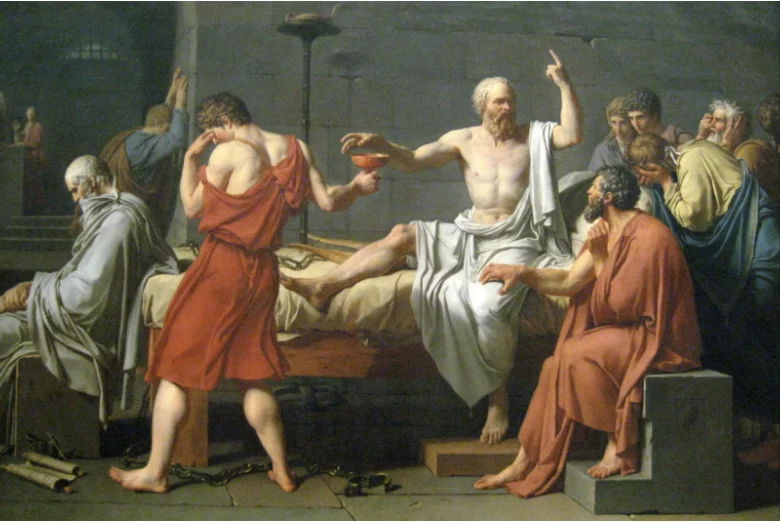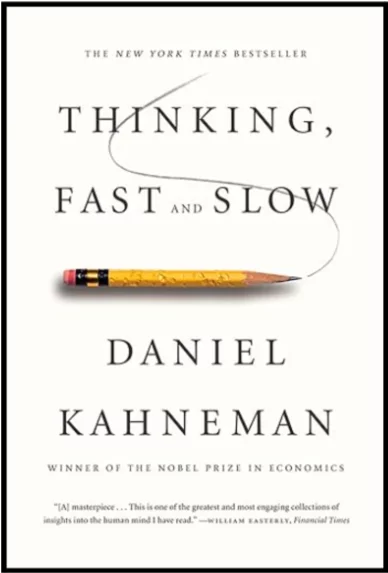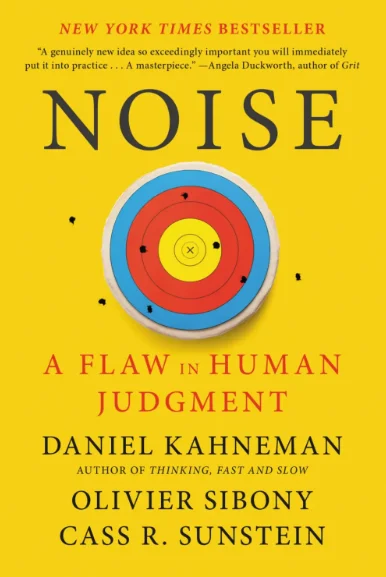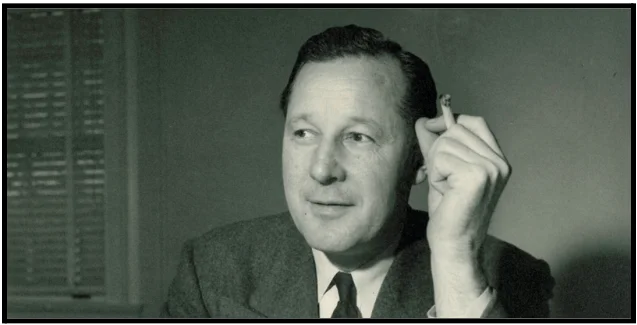Talking Big Ideas.
“It’s a wonderful thing to be optimistic.
It keeps you healthy and it keeps you resilient.”
~ Daniel Kahneman
Daniel Kahneman died on Wednesday. He had just turned 90.
A psychologist who never took a single course in economics yet won the Nobel Prize in economics, Kahneman exposed the biases and heuristics that guide our thinking. He taught us to focus on doing things that create joy and happiness. And he showed how we can better understand ourselves and others, giving us the tools to make good decisions and build a better world.
When he was seven years old, living in Nazi-occupied Paris, an unforgettable moment helped shape his understanding of the complexities of the human psyche:
In one experience I remember vividly . . . it must have been late 1941 or early 1942. Jews were required to wear the Star of David and to obey a 6 p.m. curfew. I had gone to play with a Christian friend and had stayed too late. I turned my brown sweater inside out to walk the few blocks home.
As I was walking down an empty street, I saw a German soldier approaching. He was wearing the black uniform that I had been told to fear more than others – the one worn by specially recruited SS soldiers. As I came closer to him, trying to walk fast, I noticed that he was looking at me intently.
Then he beckoned me over, picked me up, and hugged me. I was terrified that he would notice the star inside my sweater. He was speaking to me with great emotion in German. When he put me down, he opened his wallet, showed me a picture of a boy, and gave me some money. I went home more certain than ever that my mother was right: people were endlessly complicated and interesting.
If you listen to podcasts, I encourage you to make time for Kahneman’s Conversation with Tyler Cowen. The episode brings to life his intellect as well as his sense of humor and optimism.
I’ve referenced Kahneman many times in this newsletter. Here are six principles he taught that will help you as a speaker, a leader, and a human.
#1. Use clear and simple language.
From the very beginning of this newsletter, I’ve done my best to drive home the idea that effective speakers use clear and simple language. One of my first pieces highlighted the Challenger explosion as a cautionary tale against jargon.
We’ve written about crafting messages that are so simple they are akin to proverbs and then channeling your inner Winston Churchill to hammer your ideas several times to ensure they are clear and compelling.
The secret to effectively communicating numbers? Be clear and simple.
How about visuals? Be clear and simple.
There’s a false belief among academics that the key to sounding credible and intelligent is to use complex language. The truth is the opposite. And thankfully, the brilliant Daniel Kahneman understood this. As he wrote:
If you care about being thought credible and intelligent,
do not use complex language where simpler language will do.
I encourage every intellectual to copy this Kahneman quote onto a notecard, tape it to their bathroom mirror, and review it daily.
#2. The best approach is the approach that works best for you.
Kahneman was invited to give a TED talk. The TED hosts had a rule: you cannot look at your phone or computer during your talk.
Despite being a Nobel laureate with countless lecture hours under his belt, Kahneman was awkward and uncomfortable during the practice sessions. He repeatedly bumbled and stumbled and stared at the ground.
The organizers asked what was wrong, and Kahneman said he liked referencing notes on his computer as he spoke. TED organizers changed their rules to allow Kahneman to read from his computer.
He immediately came alive.
When Kahneman delivered his official TED talk on stage, computer in front of him, he was confident and engaging:
There is no one correct way to prepare for and deliver a speech. Some people prefer to write scripts, while others hate scripts and love to have a few bullet points. Some like to memorize, others prefer to internalize, and some are best when they improvise.
What makes you come alive? What helps you authentically share your ideas and connect with your audience?
Like Kahneman, I encourage you to discover and embrace whatever path is best for you.
#3. Reframe ideas to change how you think and act.
Kahneman was a master of reframing.
He wrote that ice cream marketed as “90% sugar-free” will be more popular than ice cream that’s “10% sugar.” A spray that promises to kill 95% of germs will outsell one promoting a 5% germ survival rate. The products are identical; the framing is different.
A few months ago, I wrote about how Kahneman brought to life what philosophers have understood for thousands of years: Reframing our ideas about ourselves and the world is foundational to our success and fulfillment. It’s something we can all cultivate.
The ancient Stoic Epictetus taught that setbacks will not upset us if we frame them correctly. Born a slave, he believed that giving setbacks power over our minds amounted to mental slavery. He taught us to keep our minds free from their grasp.
Socrates embodied this at the highest level. Before being executed, he said that the politicians in charge “have the power to put me to death, but not to harm me.”

We can frame every experience however we want.
The philosopher Seneca framed his setbacks as tests from the Roman deity Jupiter. He imagined Jupiter smiling down on him, playfully using the tests to help Seneca build a strong and healthy mind. He went so far as to express gratitude for his setbacks, welcoming them as gifts that gave him the opportunity to grow.
Setbacks as gifts!
We can follow the lead of Kahneman and the wisest philosophers. As the ancient monk Buddhaghosa taught:
Holding on to anger is like grasping a hot coal with the intent of throwing it at someone else. You are the one who gets burned.
4. You are tribal and biased. We all are. You can rise above this to connect with people who are different.

Nico Perrino, the Executive Vice President of the Foundation for Individual Rights and Expression (FIRE), interviewed me on his free speech podcast So to Speak. I turned a portion of our conversation into a newsletter, including this segment:
NICO: Jonathan Haidt discusses in The Righteous Mind the need to appeal to people’s moral intuitions.
BOB: Yes, exactly. This is related to the difference between System 1 and System 2 thinking from Dan Kahneman’s iconic book.
NICO: Let’s break that down.
BOB: Dan Kahneman, a brilliant thinker – the first non-economist to win the Nobel Prize in economics – wrote Thinking, Fast and Slow, and Noise, which are deep books we should read and understand.
In Thinking, Fast and Slow, he breaks down two different types of thinking. He calls them System 1 and System 2. System 1 is quick and intuitive and we use it all the time. The tiger jumps out at us and we run away, or something happens and we need to respond quickly. Then, we have this other type of slow and deliberative thinking. He calls it System 2.
One of the core insights from the book you just mentioned, The Righteous Mind, is that intuitions come first and reasoning follows. The author is saying that we make quick System 1 judgments all the time. And then we use our System 2 thinking to come up with ways to justify these snap judgments and intuitions.
Most of the time, when we interact with people, we engage in quick System 1 thinking. We make judgments and intuitions that are biased based on the ideological language we speak. We may even get angry and feel self-righteous with people who speak a different language.
Importantly, we’re not confined to using our System 2 thinking only to justify our biased intuitions. We can break free. We don’t have to use our System 2 brain to be a lawyer who can only justify his biases. We can use our slow, deliberative thoughts to be like a judge who’s honestly trying to seek the truth.
We can each use our System 2 thinking to better understand the world and move beyond anger and partisan ideology to meaningfully connect with people.
#5. Work hard to prove yourself wrong.

A year ago, I quoted Astral Codex Ten highlighting a disagreement between Daniel Kahneman and Wharton professor Matthew Killingsworth:
Really excellent adversarial collaboration between Daniel Kahneman and Matthew Killingsworth on the relationship between income and happiness. Kahneman previously found that more money didn’t make people happier past about $100K/year. Killingsworth previously found it did. They worked together and found that Kahneman was right for the least happy 20% of the population and Killingsworth was right for everyone else. This is a rare but welcome example of going from a failed replication to an actual understanding of what went wrong and what the truth is.
Most people seek out evidence to prove their ideas right. The best scientists do the opposite, embracing criticism and evidence to prove their ideas wrong.
We tend to live in bubbles that reinforce our worldviews and often refuse to consider or believe contrary ideas. Millions of us use social media daily to attack anyone who thinks differently. Daniel Kahneman and Matthew Killingsworth show us there is a better path.
Our goal should not be to defend dogma but to discover truth.
#6. Choose optimism.
I am an outspoken optimist. I believe it is our duty to acknowledge the incredible progress we’ve made and work together to build a better future. So I leave you with my favorite Kahneman quote:
If you were allowed one wish for your child, seriously consider wishing him or her optimism. Optimists are normally cheerful and happy, and therefore popular; they are resilient in adapting to failures and hardships, their chances of clinical depression are reduced, their immune system is stronger, they take better care of their health, they feel healthier than others and are in fact likely to live longer. . . .
Optimistic people play a disproportionate role in shaping our lives. Their decisions make a difference; they are inventors, entrepreneurs, political and military leaders – not average people. They got to where they are by seeking challenges and taking risks. . . .
The people who have the greatest influence on the lives of others are likely to be optimistic.
Kahneman had a tremendous and positive impact on the world. We are better because he lived.




